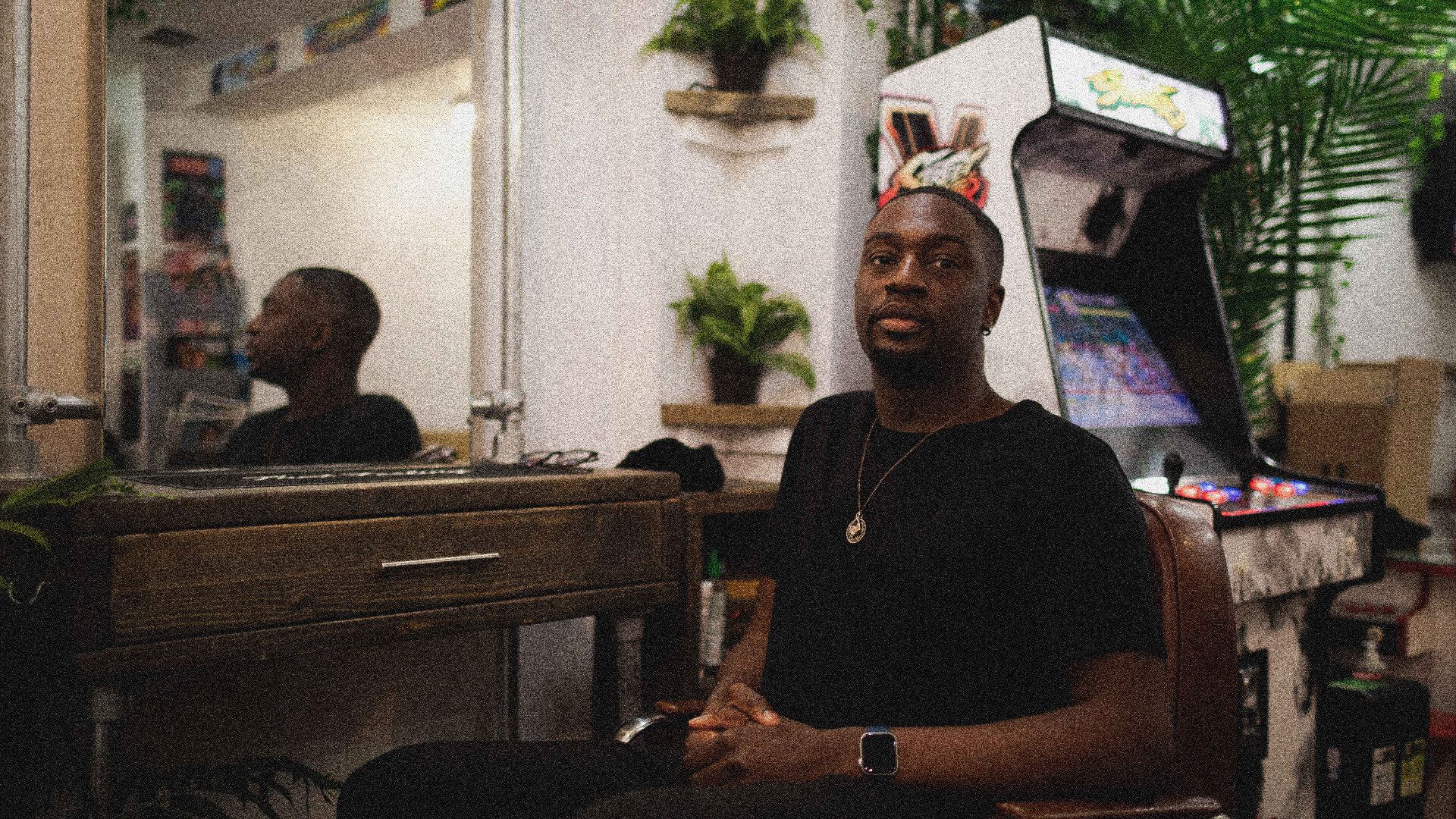

We sat down with Movember ambassador and mental health coach, writer and podcast host, Alex Holmes, for a chat In The Barber Chair.
Why is men’s mental health important to you?
“I had my first foray into mental health in the workplace as a Black man in these white dominated spaces. I didn’t feel like I belonged anywhere, I didn’t feel connected to the experience, I didn’t feel like I could thrive or grow in those spaces. It made me anxious. I didn’t feel safe, emotionally, in those spaces. I ended up having panic attacks and being overly stressed so much so that my joints started to flare up - I had traits of rheumatoid arthritis and I was getting really scared and panicky. I just didn’t feel good, so I decided to leave.
Over time I started speaking to men about their issues because I had no-one to speak to myself and I was curious to know what people were doing - I know that if I’m experiencing it someone else is. And that’s where it all started. I wrote a book called Time to Talk: How Men Think About Love, Belonging, and Connection, where I interviewed a ton of men about those three core values.”
What’s been one of the most impactful conversations you’ve had?
“I’ve had conversations around how we can be better ancestors. If we’re not operating as ancestors today for the generation that comes tomorrow, then what are we doing? We’re not forward thinking enough which really stuck with me as I to continue to figure out what I’m doing now. I think it’s interesting to think ‘what am I building now, what am being a part of now, what am I supporting now to benefit the next generation.’”
What do you turn to when times get tough?
“I started therapy in 2016 and I started training as a therapist in 2021. What having those sessions did for me was it allowed me to unpack the things that I had packed away and hidden in a drawer, in the darkest room, in the furthest house, in the deepest forest, away from everything that I was doing. And it invited me to go back there. Once I started to pick up the language and understand how to articulate where I was with it all, and operate more authentically, it opened up a whole new realm for me. I went through the process of trying to understand how I relate to people, to my parents or my siblings, my friends, and why I went through all that struggle. What were my triggers? why do I react in particular ways? All these kinds of questions kept coming up.
I think therapy is important because a lot of men only have access to anger as a response, because anger gets people listening. Therapy is a tool, a mental and emotional gym. I really learnt how to be an adult there.”
What’s the one piece of advice you would give your younger self?
“Trust yourself. Don’t listen to what other people are saying. Do what you want to do. And do it the way you want to do it. That’s the advice I would give my younger self. And I would give that advice to myself now, and at 60, and at 110. You’re living your life for you and you’re the only one that can live your life so why do it any other way. Enjoy your life.”
What’s your message when it comes to men’s health?
“I’m big on taking responsibility for your health. In my experience a lot of men avoid health related things because they are afraid of what will be told to them and how it will change their idea or perception of what it is to be a man. Men are conditioned to think they will live forever so when we have these real life changing experiences it’s like a complete shock to the system. Take responsibility for your health now, regularly. And make the lifestyle changes that are needed. Take time to have that interrogation of self.”